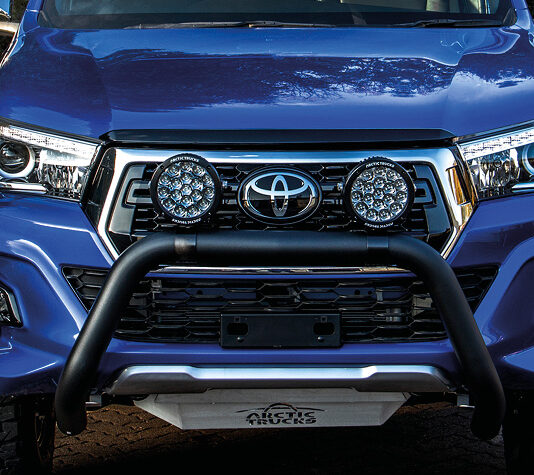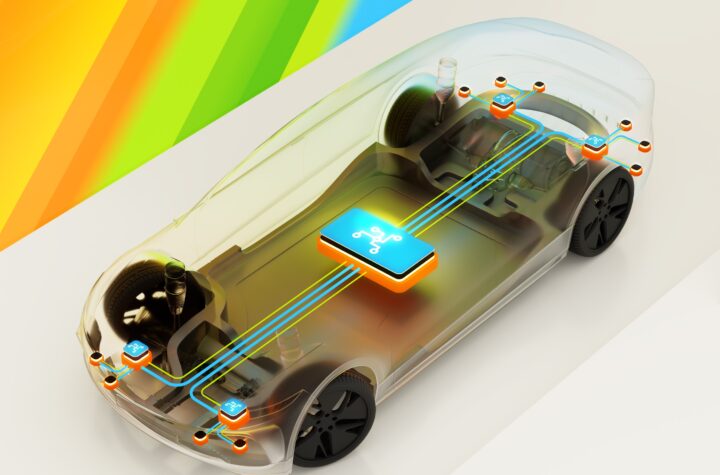
The Turkish parts manufacturer Denet Civata San A.S, makes special bolts and cold forged parts for automotive customers. It also supplies to the white goods and construction industries. But with its focus on the automotive industry, Denet Civata’s client roster includes companies like Autoliv, John Deere, Magna Steyr, Mannesmann Rexroth, DAF, AS Norma, Massey Ferguson, Motorsazan, RABA, Scania, amd ZF Lemforder.
Denet Civata is the first steel bolt manufacturer in Turkey. Established in 1948, the company exports half its production to companies in Europe and Asia. The company has the ISO TS 16949:2002 quality certification and says it constantly upgrades its quality processes to ensure minimum errors.
The company’s products are designed by the company in consultation with customers. Plus the company has the expertise to conduct all tensile strength tests, and other product testing in-house. Denet Civata is part of the Turkish Association of Automotive Parts and Component Manufacturers or Taysad. The automotive industry is Turkey was established in the 1960’s in order to cut imports and while the focus was initially on agriculture vehicles, passenger automobile factories like Ford OTOSAN and Fiat TOFAS were set up.
Companies like Denet Civata that makes parts for OEMs, found their markets growing – both domestically as well as overseas. In the 90’s, Turkeys automotive parts suppliers were recognized as being one of the sectors whose exports were competitive. It was during this time that there were a lot of tie-ups between global companies and Turkish partners. According to Taysad this helped automotive companies to improve manufacturing methods and technologies. More money was available for research and development. Which in turn further improved the products being manufactured by Turkish automotive companies and helped these products meet stringent international standards.
According to Taysad, nearly 90 per cent of production of Turkey’s automotive suppliers is exported. Both to original equipment manufacturers as well as to the automotive aftermarket. Companies like Denet Civata, benefited greatly by Turkey’s booming automotive industry. The company says it constantly works on not only keeping up with latest manufacturing technologies but also in upgrading the employee skills.
According to Taysad, one of Turkey’s biggest advantages is that the country complies with European Union standards, has flexible production capacities, costs in Turkey are competitive compared to EU countries. There is a well-trained, young workforce and international quality, safety and environmental regulations are adhered to.
Another factor is that there is a strong supplier base in Turkey, such as companies like Denet Civata. For Denet Civata, business opportunities are growing not only internationally but also domestically as Turkey’s domestic automotive market is growing.
Automotive Industries spoke to Ali Misirlioglu, Managing Director of Denet Civata San A.S.
AI: How does Denet Civata manage to reach global markets – is it through being a member of Taysad?
We are individually participating fairs in five countries every year such as France, Germany, Sweden, England, Iran to reach global market in our sector.
AI: How has your company managed to keep up with international technological breakthroughs as well as meet quality and environmental standards?
We managed to keep up those with the accumulation of 60 years experience, chasing related fairs, having certification from TUV.
AI: What are some of the challenges facing automotive parts suppliers in Turkey?
Especially Far East competition is the main challenge.
AI: How cost effective is it to manufacture in Turkey compared to other countries in Asia?
Labour cost is still high in Turkey when compared to other countries in Asia
AI: What plans does Denet Civata have to expand business both globally as well as domestically?
We are planning to move our new plant in January 2008 and we are increasing our capacity 50% with our new machinery investment.












More Stories
Saxony amps up its commitment to automobility
Zen and the art of car design
Georgia Ports Authority steps up investment to support regional economic growth